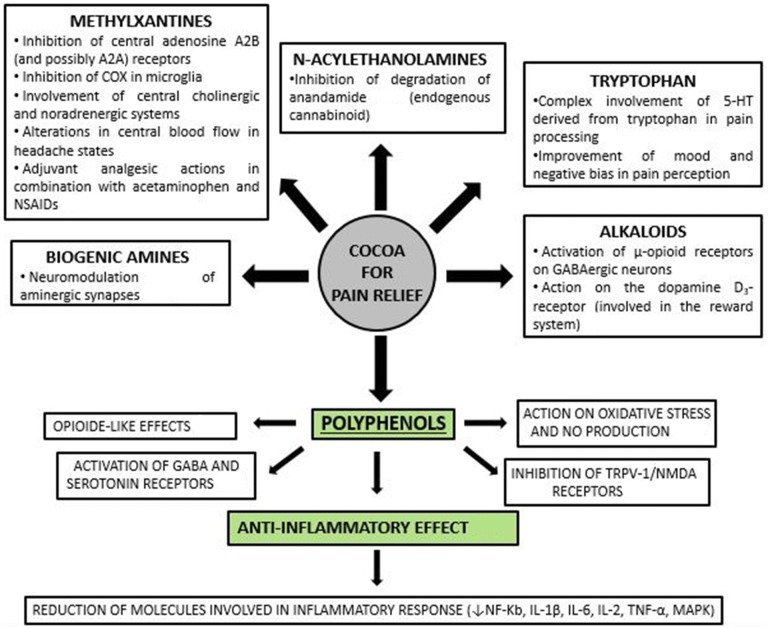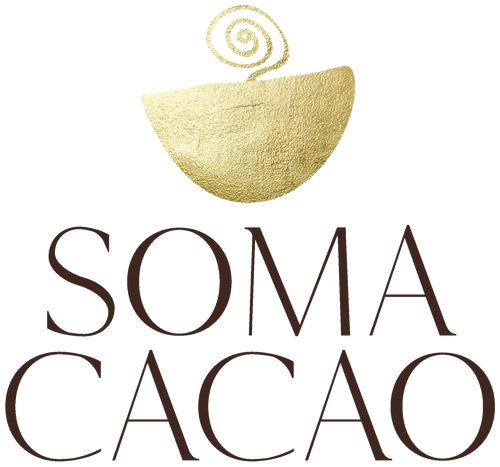Cacao and our health: new research that blows our mind

Just when we thought cacao couldn’t get any better…. we’ve stumbled upon more peer-reviewed scientific research papers that reveal some of the lesser known benefits of this super-duper food-of-the-gods.
Cacao is considered the most important and widespread functional food in human history. Its origins date back more than 3000 years ago, and it was used for nutritional and medicinal purposes by the Mayan and Aztec civilisations. Numerous reports have focused on various health-beneficial effects associated with the consumption of cacao.
Here’s some of the latest highlights:
1. CACAO & GUT HEALTH.
Cacao has been shown to have prebiotic activity, helping to fuel good bacteria and rebalance digestive health. It helps bacteria to ferment away and produce health-giving substances such as short-chain fatty acids, which fend off harmful microbes and reinforce the gut barrier against antigens and invaders. In their deep-gut alchemy these microbes create anti-inflammatory compounds that have been linked to the cardiovascular health, as well as increasing insulin sensitivity. Its prebiotic properties are due to the presence of dietary fibres. These fibres pass undigested through our digestive tract to the large intestine where our probiotics use it as fuel to grow their populations and support our health.Research showed that volunteers who consumed cacao for four weeks experienced significant increases in their gut populations of probiotics Bifidobacteria and Lactobacilli.
2. CACAO & BLOOD PRESSURE.
According to a 2012 review, daily consumption of cacao lowered people’s blood pressure an average of two to three points (milimeteres of mercury). In this study, Pereira and colleagues found that healthy young adults (of a mean age of about 20) who ate eight grams—about one small square—of 70 percent cacao chocolate each day for a month had "an obvious improvement" in vascular function over their baseline as well as a control group. Those eating the extra chocolate saw their arterial flow (measured by flow-mediated dilation) increasing, on average, from 14 percent to 23 percent.
3. CACAO & DIABETES.
Cocoa has also been shown to improve insulin sensitivity, through getting a boost from the polyphenols, the antioxidants in cacao. Research published earlier this year in Endocrine Abstracts showed that polyphenols in cacao improved insulin sensitivity even in people who did not have diabetes. Adults consumed 20 grams of polyphenol-rich dark chocolate, and showed better insulin sensitivity after just a month. The results imply that dark chocolate might delay or prevent the onset of diabetes and prediabetes.
4. CACAO & PAIN RELIEF.

A study published in the National Library of Medicine showed that the polyphenol content in cacao exerts anti-inflammatory and antioxidant actions, and also has a positive effect on pain. These are described as the anti-nociceptive qualities of cacao - which means the action or process of blocking the detection of a painful or injurious stimulus by sensory neurons. Cacao also contains serotonin (5-HT) and its precursor, tryptophan (TRP) [43]. Selective serotonin reuptake inhibitors (SSRIs), which increase serotonin levels in the brain, are effective antidepressants. They are currently also used for the management of chronic pain.
5. CACAO & THE BRAIN
Researchers have discovered that epicatechin, a compound in cacao, may protect your brain after a stroke by increasing cellular signals that shield nerve cells from damage. An hour and a half after feeding mice a single dose of epicatechin, animals that had ingested the compound suffered significantly less brain damage following an induced stroke. Eurekalert reports: “While most treatments against stroke in humans have to be given within a two- to three-hour time window to be effective, epicatechin appeared to limit further neuronal damage when given to mice 3.5 hours after a stroke.“ Cacao has also been shown to reduce the risk of dementia by protecting brain cells from damage and increasing blood flow around the brain.
6. CACAO & HEART DISEASE.
One study published in 2019 found that just 6.7 grams of dark chocolate per day can provide effective protection against inflammation and cardiovascular disease. Chronic inflammation is a risk factor for the development of cardiovascular diseases ranging from myocardial infarction to stroke. The study found that those who ate dark chocolate regularly had an average of 17 percent reduction in C-reactive protein — enough to decrease the risk of cardiovascular disease by one-third in women and one-fourth in men.
7. CACAO & SKIN HEALTH.
A growing body of evidence from clinical and bench research has begun to provide scientific validation for the use of cocoa-derived phytochemicals as an effective approach for skin protection. The flavonoid antioxidant content in cacao may help prevent our skin from sun damage. These compounds improve blood flow, skin thickness, and hydration. More blood flows to the surface of the skin, keeping it healthy and glowing. A potent anti-inflammatory, cacao soothes redness and blemishes. The natural oil derived from the cacao seed, also known as cacao butter, contains healthy omega-6 fatty acids for a healthy dose of skin soothing rejuvenation.
Cacao components have been utilized in various skin diseases, such as skin cancer, psoriasis, acne and wound healing. It is noteworthy that is has been shown that cocoa has great potential not only for the treatments of skin diseases, but also for their prevention. In particular, antioxidants found in cocoa protect the skin from the inside by neutralizing oxidative stress, a major factor of dermal structure deterioration and premature skin ageing.
- Tags: Health


































